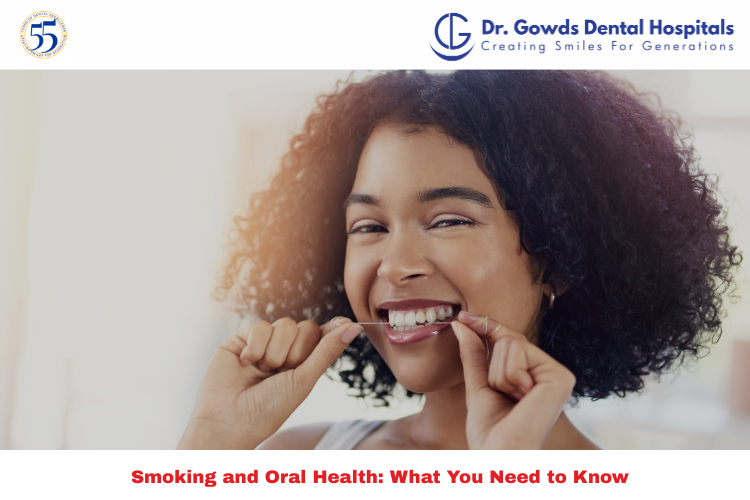Schedule Appointment



Smoking is a severe habit that has negative impacts that are not limited to the lungs. Oral health is a place where smoking plays a role quietly, and this role increases the danger of gum disease, tooth decay, bad breath, and even oral cancer. If you are really concerned about your smile and overall well-being, then you should know that understanding how smoking affects your mouth is a must. Here we go to the key impacts and the things you can do to shield your oral health.
You are not aware that your mouth is a micro-environment of bacteria, saliva, and tissues which all interact for your overall health. The smoking of cigarettes is doing the same damage to this environment, only in different ways:
All these make a perfect environment for very serious and abundant oral health problems to develop.
Smoking is one of the most common reasons for people to have gum disease (periodontitis). At first, it will cause gum inflammation — called gingivitis — if not treated, it will further proceed to an infection that will destroy the bone which works for your teeth.
What makes smokers more likely to get sick with this condition:
Failure to get treatment for gum disease results in mobility of teeth and ultimately tooth loss. The results of a study have indicated that smokers have a much bigger chance of severe gum disease, with figures in the range of three to four times before compared to non-smokers.
Smoking is commonly associated with lung cancer risk, but it is also the most common cause of oral cancer. This lethal disease typically presents with the lips, tongue, cheeks, and throat.
This is what you should know:
It is very important to be on top of and stay vigilant in your oral cavity surveillance while quitting smoking during the entire period the dental facilities are conducting cancer screenings early sign focused.
Before you are treated with dental treatments including, e.g. implants, extractions, or gum surgery, the habit of smoking can certainly be harmful to your health in case of failure:
To achieve higher success rates and faster recovery, it is strongly recommended by dental professionals that patients quit smoking both pre and post the treatments.
Quitting smoking isn’t just good for your lungs — your mouth will thank you too. Here’s what happens over time after quitting:
The sooner you quit, the faster your mouth can regain its health.
Daily Habits That Help Counteract Smoking Damage
Regardless of whether you are still smoking or you have just made the decision to quit, ongoing dental care may have a great impact on your health:
Certainly, these activities will not let bacteria grow and will prevent the occurrence of gum diseases.
Smoking impacts your oral health in profound, often unseen ways. From gum disease and tooth loss to oral cancer, the risks are severe but avoidable. Knowledge is power — understanding these risks and taking action to quit smoking is the best way to protect your smile and overall health.
Every cigarette damages your mouth, but every smoke-free day is a step toward healing.
Visit Dr. Gowds Dental Hospital for expert care.
Initially, the process of healing the gum starts just during the first several weeks, but the full regrowth needs the severity of the injury and some protection given.
Smoking brings about very resistant stains on the teeth, however, the answer to this is professional cleaning and whitening as discoloration can be minimized after quitting.
The idea is that smokers should see their dentist for deep cleaning and a thorough examination every 3-4 months personally.
Yeah, smoking has been found to be a direct cause of low implant success rates and is related to poor healing and infection risks.
Be observant of ulcers, white or red patches, lumps, pain, or no sensation that linger for more than two weeks after the first detection.